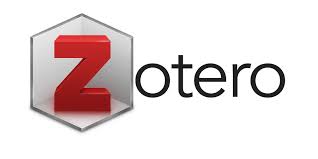Kemampuan Peserta Didik dalam Menyelesaikan Soal Berbasis Higher Order Thinking Skills (HOTS)
DOI:
https://doi.org/10.29240/ja.v4i1.4160Keywords:
HOTS based-Questions, Ability to thinkAbstract
The thinking ability of students can be improved by giving questions based on high-level abilities or Higher Order Thinking Skills (HOTS). The purpose of the study was to determine the ability of students to work on HOTS-based questions in class VIII MTs.S 1 Darussalam. This qualitative research was conducted at MTs.S 1 Darussalam. In this study, the data collection techniques used were observation, interviews, and documentation. The subjects of this study were 29 students from class VIII.D MTs.S 1 Darussalam with purposive sampling technique. Data analysis techniques in this study include data reduction, data presentation, and drawing conclusions. The results showed that there were 10% of students who got high HOTS scores, 66% of students got moderate HOTS scores, and 24% of students got low scores. Students who get high scores are those who can solve HOTS-based questions at levels C4, C5 and C6, for students who get moderate scores are those who are only able to work on HOTS questions at levels C4 and C5 only while students who get low scores can only do HOTS-based questions at the C4 level.
Downloads
References
Depa, Yohanis Ndapa. (2020). Analisis Kemampuan Peserta didik dalam Menyelesaikan Soal Ujian Nasional Matematika SMP/MTs Berdasarkan Perspektif Higher Order Thinking Skills (HOTS). JUPITEK : Jurnal Pendidikan Matematika, Vol 3, No 1. Retrieved from https://ojs3.unpatti.ac.id/index.php/jupitek/article/view/1699
Evi, Nurjanah., dan Harta, Idris. (2016). Eksperimen Penerapan Pembelajaran Matematika dengan Model Student Teams Achievement Division (STAD) dan Jigsaw Terhadap Prestasi Belajar Ditinjau dari Minat Belajar Peserta didik Kelas VII Semester Genap SMP Muhammadiyah 4 Surakarta Tahun 2015/2016. Skripsi. Surakarta: Universitas Muhammadiyah Surakarta. Retrieved from http://eprints.ums.ac.id/43007/
Hanifah, Nurdinah. (2019). Pengembangan Instrumen Penilaian Higher Order Thinking Skill (HOTS) di Sekolah Dasar." Current Research In Education: Conference Series Journal Vol 2, No 1. Retrieved from https://ejournal.upi.edu/index.php/crecs/articleview/14286
Jamal, Fakhrul. (2014). Analisis Kesulitan Belajar Peserta Didik dalam Mata Pelajaran Matematika pada Materi Peluang Kelas XI IPA SMA Muhammadiyah Meulaboh Johan Pahlawan. Jurnal Maju (Jurnal pendidikan Matematika) Vol 1, No 1. Retrieved from https://www.neliti.com/id/publications/269982/analisis-kesulitan-belajar- peserta didik-dalam-mata-pelajaran-matematika-pada-materi
Suryapuspitarini, B. K., dkk. (2018). Analisis Soal-Soal Matematika Tipe Higher Order Thinking Skill (HOTS) pada Kurikulum 2013 untuk Mendukung Kemampuan Literasi Peserta Didik. PRISMA: Prosiding Seminar Nasional Matematika. FMIPA Universitas Negeri Semarang, 876-884. Retrieved from https://journal.unnes.ac.id/sju/index.php/prisma/article/view/20393
Mustaqim, Shirothol. (2019). Analisis Kemampuan Pemecahan Masalah Matematika Peserta didik dalam Menyelesaikan Soal HOTS Ditinjau dari Habits Of Mind. Digital Library. Surabaya: Universitas Islam Negeri Sunan Ampel. http://digilib.uinsby.ac.id/38633/
Sugiyono. (2018). Metode Penelitian Kuantitatif Kualitatif dan R&D. Bandung: Alfabeta.
Widana, I Wayan. (2017). Modul Penyusunan Soal HOTS. Jakarta: Direktorat Sekolah Menengah.
Downloads
Published
Issue
Section
Citation Check
License
Copyright (c) 2022 Sindi Destrianti, Hendra Harmi, Anisya Septiana

This work is licensed under a Creative Commons Attribution-NonCommercial-ShareAlike 4.0 International License.
Authors who publish with ARITHMETIC: Academic Journal of Math agree to the following terms:
- Authors retain copyright and grant the journal right of first publication with the work simultaneously licensed under a Creative Commons Attribution-NonCommercial-ShareAlike 4.0 International License (CC BY-NC-SA 4.0) that allows others to share the work with an acknowledgment of the work's authorship and initial publication in this journal.
- Authors are able to enter into separate, additional contractual arrangements for the non-exclusive distribution of the journal's published version of the work (e.g., post it to an institutional repository or publish it in a book), with an acknowledgment of its initial publication in this journal.
- Authors are permitted and encouraged to post their work online (e.g., in institutional repositories or on their website) prior to and during the submission process, as it can lead to productive exchanges, as well as earlier and greater citation of published work (See The Effect of Open Access).







